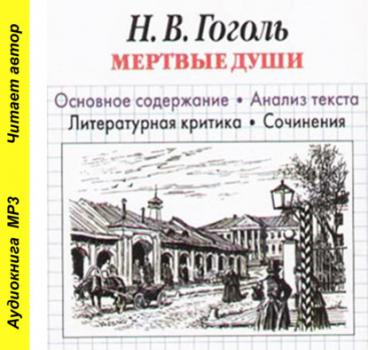ТОП просматриваемых книг сайта:















Автор
Все книги издательства АвторАннотация
Небольшой научно-фантастический рассказ о том, каким может быть наказание.
Аннотация
Лирические зарисовки о природе, стихотворные мечты о возвышенном, поэтические рассуждения о страсти, любви, предательстве, верности, измене и жизни.
Аннотация
Вот же чёртова девка!
Она ворвалась в мой кабинет с той же бесцеремонностью, с какой привыкла топать по жизни.
– Кирилл Андреевич, добрый день! – наглая бестия широко улыбнулась.
Был добрый… Пока на него не обрушилась чудовищная напасть…
Маленькая и изящная, как фарфоровая куколка. Только мне уже известно, как бывает обманчива внешность. В нежном ангельском облике кротость и смирение, а в чернющих глазах черти отжигают рок-н-ролл.
Зачем она снова здесь? Я даже не рискую строить предположения и терпеливо жду хреновых новостей…
Информация о книге
Автор произведения Алиса Перова
Жанр Современные любовные романы
Серия Папины дочки
Аннотация
Оскар никогда не был фанатом «Друзей», Нью-Йорка и американской мечты в частности. Но когда о его связи с профессором стало известно деканату университета, выбирать особо не пришлось. Впереди ждал Колумбийский, съёмная квартирка на троих и сплошные перемены в жизни. Нью-Йорк – город мечты, а когда тебе чуть за двадцать, ты не можешь быть никем иным, чем мечтателем.
Все персонажи старше 18 лет.
Содержит нецензурную брань.
Аннотация
Дома у нее больше нет. Семьи тоже. Даже одежда – и та с чужого плеча. Зато есть мертвая советница, которая врывается в ее сны, точно в собственную спальню, и спутник – эльф, то ли наставник, то ли телохранитель. А еще у нее есть надежда, что, может быть, все еще будет хорошо. По крайней мере, пока он рядом.
Аннотация
Сорвать важную помолвку, сбежать из дома верхом на драконе, спрятаться среди адептов чужой Академии. Всё это в духе строптивицы Бель, не желающей жить по законам консервативного общества. Кто бы знал, что однажды она проснется Беллатрикс Гвиденби – единственной наследницей знатной фамилии. А такая желанная когда-то Драконья Академия обратится клеткой, полной опасных ловушек. Плыть по течению, сдавшись на милость судьбе? Не в ее это правилах! Особенно, если рядом тот, с кем в огонь и в воду не страшно.
Н. В. Гоголь «Мертвые души». Основное содержание. Анализ текста. Литературная критика. Сочинения - И. О. Родин
Аннотация
Данная книга содержит в себе все необходимое, что может понадобиться при изучении поэмы «Мертвые души» в школе, а также при сдаче ОГЭ и ЕГЭ. Это биографические сведения об авторе, краткое содержание произведения. Особое внимание уделено анализу текста и написанию сочинений, поскольку именно это вызывает наибольшие трудности при сдаче экзаменов.
Л. Н. Толстой «Война и мир». Краткое содержание. Анализ текста. Литературная критика. Сочинения - И. О. Родин
Аннотация
Данная книга содержит в себе все необходимое, что может понадобиться при изучении творчества Л. Н. Толстого в школе, а также при сдаче ОГЭ и ЕГЭ. Это биографические сведения об авторе, достаточно детальный краткий пересказ содержания произведения. Особое внимание уделено анализу текста и системы образов, а также написанию сочинений, поскольку именно это вызывает наибольшие трудности.
Аннотация
Что будет, если телефонное приложение яростно будет следить за твоей эффективностью?
Кто такой нейрокоуч и чем он занимается?
Как испытать «жажду жизни с гарантией»?
А нужно ли худеть?
Какие бывают истории успеха? Что такое сторителлинг?
Как заставить чиновников эффективнее работать?
Что значить любовь, с разных точек зрений?
Как может исказиться разум и как можно стать опасным для общества?
Что может произойти, если столкнёшься с древними тайнами?
Что значит быть писателем?
Каждый из 25 рассказов, приведенных в этом сборнике, имеет свою историю.
Автор открывает часть своих профессиональных и личных тайн о том, как создавал свои произведения.
Всегда интересно заглянуть за кулисы творчества…
Аннотация
Мы запоминаем имена «победителей», забывая тех, с кем они боролись. В этой книге все внимание сфокусировано на том, кто однажды «потерпел поражение», но не сломался, а продолжил жить, пытаясь понять: в чем же сила победившего его соперника. Вся жизнь настоящего бойца – череда «поражений», из которых он извлекает урок, продолжает «тренироваться» и становится лучше, сильнее, мудрее… Если в процессе своего развития он фокусируется на своем потенциале, требующем раскрытия, то итог один: титул непобедимого чемпиона! Чемпионство означает достижение максимально возможного уровня своего развития. Как понять, что ты чемпион? Для этого есть единственный критерий: момент «здесь и сейчас». Кто научился видеть себя в текущем моменте объективно, тот обретает способность стать чемпионом для самого себя, продолжая путь, наслаждаясь процессом, обретая себя истинного.










